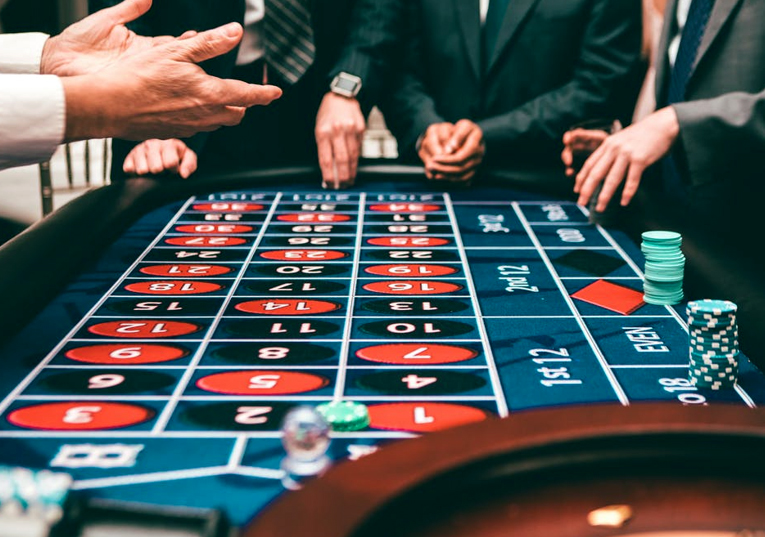In the dynamic world of gaming, gaming games have long captured the attention of participants around the globe. These games, ranging from timeless card options like blackjack to the spinning reels of slots, offer an fascinating mix of luck and tactics. While fortune undeniably plays a significant role in influencing outcomes, the significance of skill in many gambling options cannot be ignored. Grasping how skill affects the game can improve not only a gambler’s enjoyment but also their chances of achievement.
As we explore further the inner workings of casino activities, it becomes evident that some need a robust foundation of understanding and strategy. Games like blackjack require more than just luck; they demand strategic thinking, mental insight, and strategic decision-making. In contrast, other games, such as roulette and slot machines, are primarily based on randomness, allowing players to rely solely on random chance. This difference raises intriguing questions about what really drives success in the realm of gambling and how a gambler’s abilities can sway the outcome in their advantage.
Comprehending Skill versus Luck within Gambling Games
Within the realm of casino games, the debate between skill and luck is a enduring one. Many games are frequently divided into two categories: those that depend predominantly on chance, such as slot machines and the wheel, and those where skill plays a crucial role, like poker and blackjack. CPC2888 The difference is important because it affects not only gameplay strategies but also the approach players take when engaging with these games. Although luck can play a critical role in the immediate, skilled players can boost their chances of winning over the extended period in skill-based games.

Skill-based games, especially poker, demand players to understand odds, psychology, and game strategies. A seasoned poker player can analyze opponents, make strategic bets, and know when to fold, all of which can lead to more favorable outcomes. On the other hand, in games that are purely chance-driven, no amount of skill can alter the odds. This means that while a player may win big in one session, their success may often be at the mercy to the whims of random outcomes rather than any strategic expertise.
In the end, both skill and luck coexist in the world of casino games, creating a vibrant environment for players. While games of chance can provide excitement and instant gratification, proficiency and strategy in skill-based games offer a deeper level of engagement for those willing to invest time in honing their craft. This interplay between skill and luck defines the experiences of players and influences their connection with the games they choose to play.
The Impact of Expertise on Casino Results
In the realm of gambling games, ability plays a key role in determining the results, especially in activities where strategy and choices are paramount. For instance, in poker, players must examine rivals, calculate odds, and make calculated bets to maximize their chances of succeeding. Unlike activities that depend purely on luck, such as slots or the roulette wheel, this game demands an understanding of both the rules and the psychology of other players, making expertise a vital component of success.
Other strategy-based games, like the game of blackjack, also highlight the significance of player skill. Knowledge of basic strategy, card counting, and when to hit or stand can significantly influence the casino advantage. A proficient 21 player can reduce this edge and improve their odds of success over time. This contrasts with games that do not allow for such tactical play, demonstrating how the level of expertise influences the possibility for positive results.
Moreover, even within games considered primarily luck-based, like the game of craps, the decisions made by gamblers can influence their overall success. Choosing the right bets, comprehending the odds of different outcomes, and managing one’s bankroll are essential aspects that can enhance a participant’s experience and results. Thus, while chance remains a component in gambling, ability can substantially influence how effectively participants navigate these settings, leading to more positive outcomes.
Tactics for Expert Play in Casinos
To excel in casino games, players must develop a robust grasp of the regulations and probabilities involved in each game. This basic knowledge enables individuals to make educated choices, especially in skillful games like Texas Hold’em and 21. Becoming acquainted oneself with game strategies, such as keeping track of cards in 21 or recognizing betting patterns in Texas Hold’em, can significantly enhance a player’s odds of winning. Sharpening these tactics through mock games or lower-stakes games allows players to hone their skills without risking substantial amounts of money at risk.
One more key approach is bankroll management. Players should establish a spending limit before entering the casino and adhere to it rigorously. This involves deciding how much they are prepared to lose and setting limits on how much they will bet in every gaming session. By keeping a regulated approach to gambling, players can prolong their play and reduce the risk of significant losses. Additionally, taking breaks can help preserve a clear mind and prevent impulsive decisions that often lead to unfavorable outcomes.
Ultimately, emotional control is crucial in the intense environment of a casino. Players must learn to manage their emotions, particularly during periods of winning or defeats streaks. Staying attentive and not letting emotions influence gameplay can lead to more logical decisions. Methods such as taking deep breaths or walking away from the gaming table during heated moments can help keep calmness. By cultivating a balanced state of mind, players can approach gambling games with assurance and expertise, ultimately improving their complete gaming experience and results.